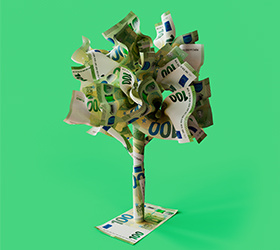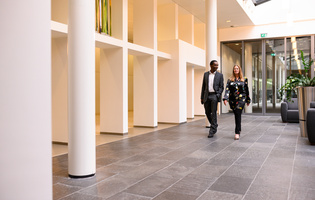How can we help boost sustainability in the Netherlands?
Sustainability & Climate
Together towards a sustainable future
Many companies and consumers are already giving thought to sustainability. Think green roofs or solar panels. Getting things repaired instead of discarding them. But climate and environmental issues are far-reaching. Global warming. Shortages of raw materials. Flooding caused by violent rainstorms. Famine or higher food prices due to drought. Deteriorating public health from pollution. DNB is committed to financial stability and sustainable prosperity, so these factors directly affect the work we do.
But how exactly do we do that? In the video below, Arjan Dwarshuis talks to colleagues at DNB to seek answers to this question.
Risks that affect the entire financial system
During floods, houses will be under water – literally. And that puts the underlying value of mortgage loans at risk. Extreme storms cause extreme damage, resulting in higher insurance claims. Insurers feel this directly in their assets. If there are fewer insects or a water shortage, crops may fail. Parties that finance agricultural enterprises could then lose money. The entire financial system is therefore at risk from climate change. This is why sustainability is a strategic priority for us in our role as a supervisory authority and central bank.
Sustainability as a strategic priority
DNB's Sustainable Finance Strategy sets out goals for integrating sustainability into all our core tasks by 2025. This is not just about climate change and environmental degradation Social issues such as accessibility of the payment system and diversity and inclusion are also important. We also seek to make a positive contribution to global sustainability goals.
Our Sustainable Finance Office is responsible for monitoring our sustainability activities and driving them forward. This team forms DNB’s “sustainability hub” and closely tracks developments. Interaction with the outside world is key, which is why we gather input from a wide range of stakeholders: from financial institutions, policymakers, and sustainability experts, to NGOs and other relevant parties. We use this input to keep our Sustainable Finance Strategy up to date. We also apply the strategy to ourselves. Consider operational management, our buildings and our own-account investments. Because for DNB too, a better world starts with ourselves.
Share your insight, shape our society
Find out in which area of expertise you can contribute.






